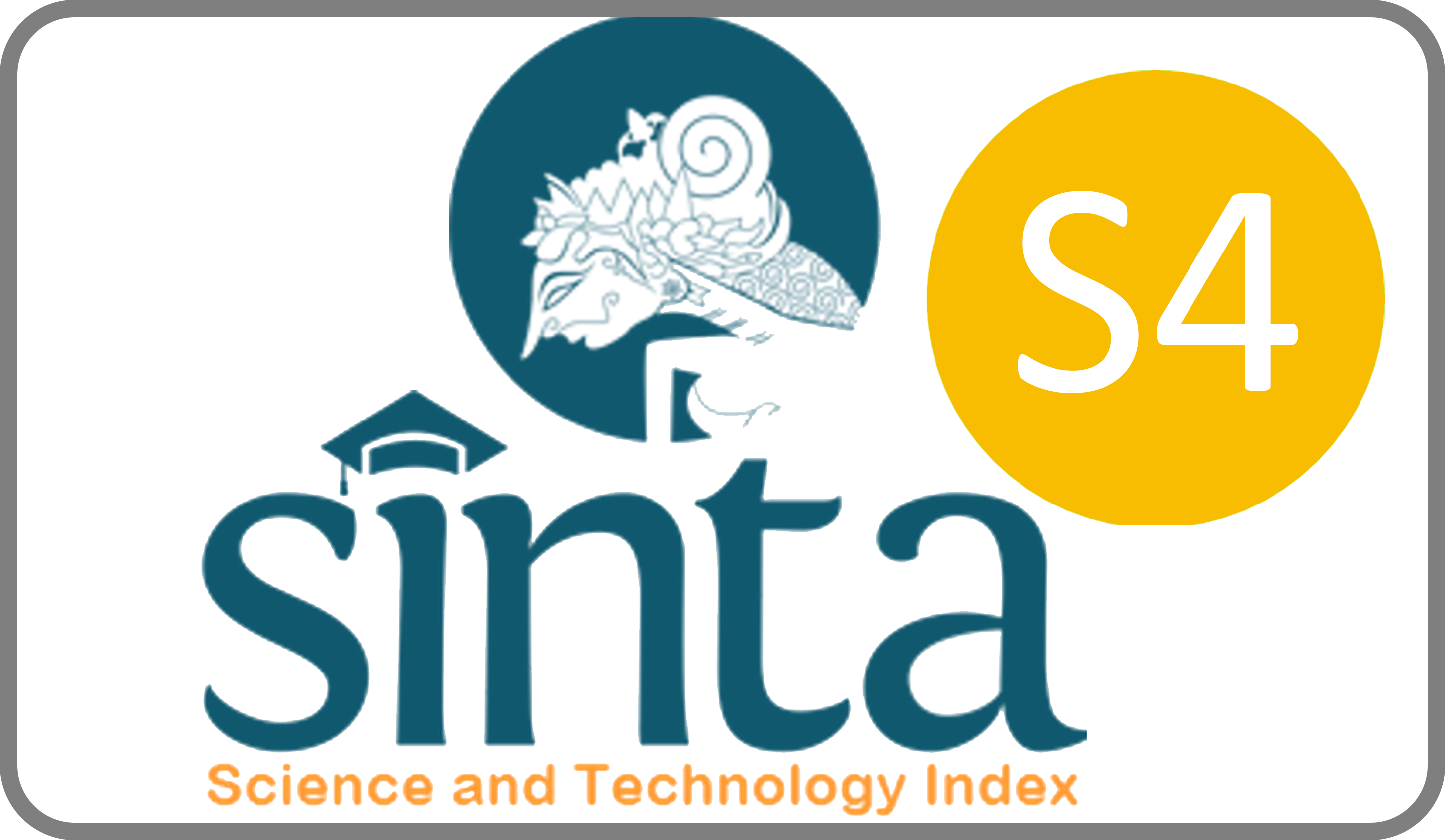OPTIMIZING SELF-MANAGEMENT FOR PREVENTION AND CONTROL OF DIABETES MELLITUS THROUGH SELF-MONITORING PRACTICES AND THE DIARY DM APPLICATION
Downloads
Diabetes mellitus self-management activities, according to the Association of Diabetes Care & Education Specialists, involve monitoring blood glucose and decreasing risk factors. These two activities can be supported by using the Diary DM application, which helps to record blood glucose levels and determine nutritional status to support the reduction of risk factors. The aim of this community service is to optimize self-management for the prevention and control of diabetes mellitus through self-monitoring practices and the Diary DM application. The methods of this community service include socializing, demonstrating, and direct practice on how to conduct blood glucose self-checks and utilize the Diary DM application. The total number of participants in this community service is 20, with an average productive age of 53.6 years. The results of the pre-test and post-test analysis showed an increase in participants' knowledge regarding DM self-examination, with an initial score of 63.88 (pre-test) rising to 86.25 (post-test). Positive attitudes were observed, reflecting participants' awareness and willingness to conduct blood glucose self-checks at home and implement the use of the Diary DM application. The majority of the community service's evaluations indicated "good" and "very good" ratings regarding the speakers, the topics, and the implementation of community service aspects.
Adu, M. D., Malabu, U. H., Malau-Aduli, A. E. O., & Malau-Aduli, B. S. (2019). Enablers and barriers to effective diabetes self-management: A multi-national investigation. PLoS ONE, 14(6), 1–22. https://doi.org/10.1371/journal.pone.0217771
Allida, S., Du, H., Xu, X., Prichard, R., Chang, S., Hickman, L. D., … Inglis, S. C. (2020). mHealth education interventions in heart failure. Cochrane Database of Systematic Reviews, 2020(7). https://doi.org/10.1002/14651858.CD011845.pub2
Association of Diabetes Care and Education Specialist. (2021). An Effective Model of Diabetes Care and Education: The ADCES7 Self-Care BehaviorsTM. Science of Diabetes Self-Management and Care, 47(1), 30–53. https://doi.org/10.1177/0145721720978154
Bankhele, S., Mhaske, A., Bhat, S., & Shinde, S. V. (2017). A Diabetic Healthcare Recommendation System. International Journal of Computer Applications, 167(5), 14–18. https://doi.org/10.5120/ijca2017914246
Dinas Kesehatan Jawa Timur. (2021). Profil Kesehatan 2021. In Profil Kesehatan Provinsi Jawa Timur (Vol. 1). https://doi.org/10.21831/dinamika.v3i1.19144
Faradisi, F., Aktifah, N., & Widyastuti, W. (2023). Pelatihan Kader Tanggap Diabetes Melitus Sebagai Wahana Dalam Pencegahan Komlpikasi Ulkus Kaki Dm Di Wilayah Sapugarut. Jurnal Batikmu, 3(1), 40–44. https://doi.org/10.48144/batikmu.v3i1.1382
International Diabetes Federation. (2019). IDF Diabetes Atlas. In The Lancet (Ninth Edit, Vol. 266). https://doi.org/10.1016/S0140-6736(55)92135-8
Izzah, Z., Shinta, D. W., Aryani, T., & Budiatin, A. S. (2017). EFFECT OF DIABETES TRAINING PROGRAM ON KNOWLEDGE AND ASSESSMENT SKILL AMONG GERIATRIC WORKER COMMUNITY IN SURABAYA. Jurnal Layanan Masyarakat (Journal of Public Services), 1 (2), 56–60. https://doi.org/https://doi.org/10.20473/jlm.v1i2.2017.56-60
Kementrian Kesehatan Republik Indonesia. (2021). Keputusan Menteri Kesehatan Republik Indonesia Nomor HK.01.07/MENKES/5675/2021 tentang Data Penduduk Sasaran Program Pembangunan Kesehatan Tahun 2021-2025. Peraturan Menteri Kesehatan RI, 2025, 1–1405. Retrieved from jdih.kemkes.go.id
Rochani, S., & Pamboaji, G. (2022). Efektivitas Pendidikan Kesehatan dengan Flipchart Terhadap Pengetahuan dan Kepatuhan Pasien Dalam Melaksanakan Program Diet pada Pasien Diabetes Melitus. Jurnal Wacana Kesehatan, 7(2), 89. https://doi.org/10.52822/jwk.v7i2.411
Rosiek, A., Kornatowski, T., Frąckowiak-Maciejewska, N., Rosiek-Kryszewska, A., Wyżgowski, P., & Leksowski, K. (2016). Health behaviors of patients diagnosed with type 2 diabetes mellitus and their influence on the patients’ satisfaction with life. Therapeutics and Clinical Risk Management, 12, 1783–1792. https://doi.org/10.2147/TCRM.S118014
Tunjungsari, F., Isbandiyah, & Farajihan. (2020). Pengaruh APGAR Family Terhadap Quality of Life Pasien Diabetes Mellitus Tipe 2. CoMPHI Journal: Community Medicine and Public Health of Indonesia Journal, 1(1), 22–28. https://doi.org/10.37148/comphijournal.v1i1.5
World Health Organization. (2016). Global report on adult learning executive summary. World Organization Health, 3. Retrieved from http://apps.who.int/iris/bitstream/handle/10665/204874/WHO_NMH_NVI_16.3_e;jsessionid=1B12DB893FDEE9D962EE8E75B37A2B25?sequence=1
World Health Organization. (2023). Diabetes. Retrieved September 22, 2023, from https://www.who.int/news-room/fact-sheets/detail/diabetes
Zheng, F., Liu, S., Liu, Y., & Deng, L. (2019). Effects of an outpatient diabetes self-management education on patients with type 2 diabetes in China: A randomized controlled trial. Journal of Diabetes Research, 2019. https://doi.org/10.1155/2019/1073131.
Copyright (c) 2025 Nur Septia Handayani, Fitri Retrialisca, Endah Purwanti, Yusuf Maulana Qomari, Rifky Mahdiyah Ferrari, Buyung Wijianto, Talidah Nur Keyesa, Maulana Biagi Zaen

This work is licensed under a Creative Commons Attribution-ShareAlike 4.0 International License.
JLM by Unair is licensed under a Creative Commons Attribution-ShareAlike 4.0 International License.
1. The journal allows the author to hold the copyright of the article without restrictions.
2. The journal allows the author(s) to retain publishing rights without restrictions
3. The legal formal aspect of journal publication accessibility refers to Creative Commons Attribution Share-Alike (CC BY-SA).
4. The Creative Commons Attribution Share-Alike (CC BY-SA) license allows re-distribution and re-use of a licensed work on the conditions that the creator is appropriately credited and that any derivative work is made available under "the same, similar or a compatible license”. Other than the conditions mentioned above, the editorial board is not responsible for copyright violation.


















